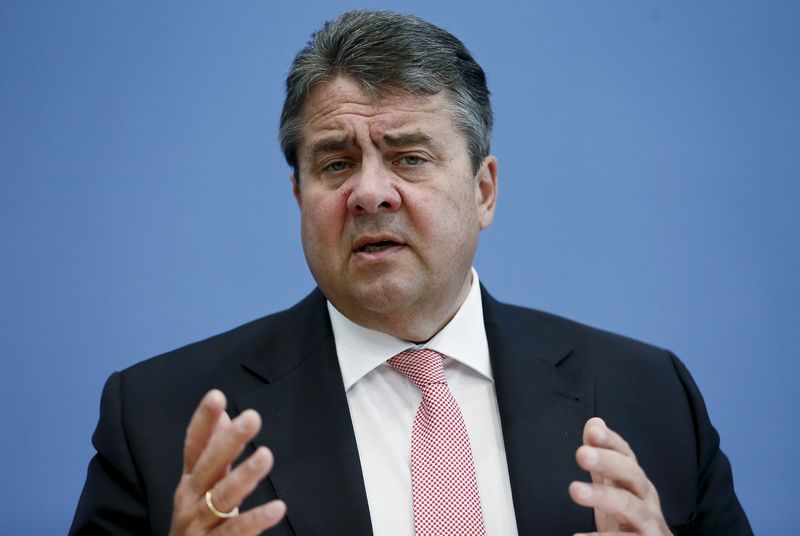BERLIN (Reuters) - The European Union should take a tough stance in dealing with China in a dispute over low steel prices, German Economy Minister Sigmar Gabriel said on Thursday.
European steelmakers have been hit by a plunge in steel prices which they blame largely on a surge in cheap exports from China, where overcapacity has been exacerbated by declining domestic demand.
India's Tata group announced plans last month to quit its entire British steel operation.
"What is really at stake in the EU is whether we have the courage to take an aggressive position against China," Gabriel said in the German Bundestag lower house of parliament, adding that he would be in favor of taking such a stance.
Gabriel said he was in favor of the EU actively defending itself but he acknowledged concerns about a possible trade war with China: "No one wants a trade war and no one wants anti-dumping measures either," he said.
The Bundestag passed a motion from the coalition, which called for better protection of the steel industry in Germany.
Gabriel suggested using the recognition as a market economy status that Beijing is seeking as a means of putting pressure on China.
"China can't get market economy status if China does not stick to the rules of a market economy," he said, adding that those who do not respect the rules of free trade could not be guaranteed free trade themselves either.
If the Commission granted China market economy status, as Beijing wants, it would make it harder for Europe to impose anti-dumping duties on Chinese goods sold at knock-down prices, changing the criteria for determining a fair price.
The United States has said Beijing needs to cut overcapacity or face possible trade action from other countries.
Gabriel said that the EU should work with the United States on tackling cheap imports from China.
He also said that in view of the consolidation of the global steel industry, Germany and France should work more closely together.

He added that he had agreed with his French Economy Minister Emmanuel Macron and Germany's IG Metall engineering union to again use so-called 'steel moderators' which Germany used in the 1980s to create cross-company cooperations in Europe.